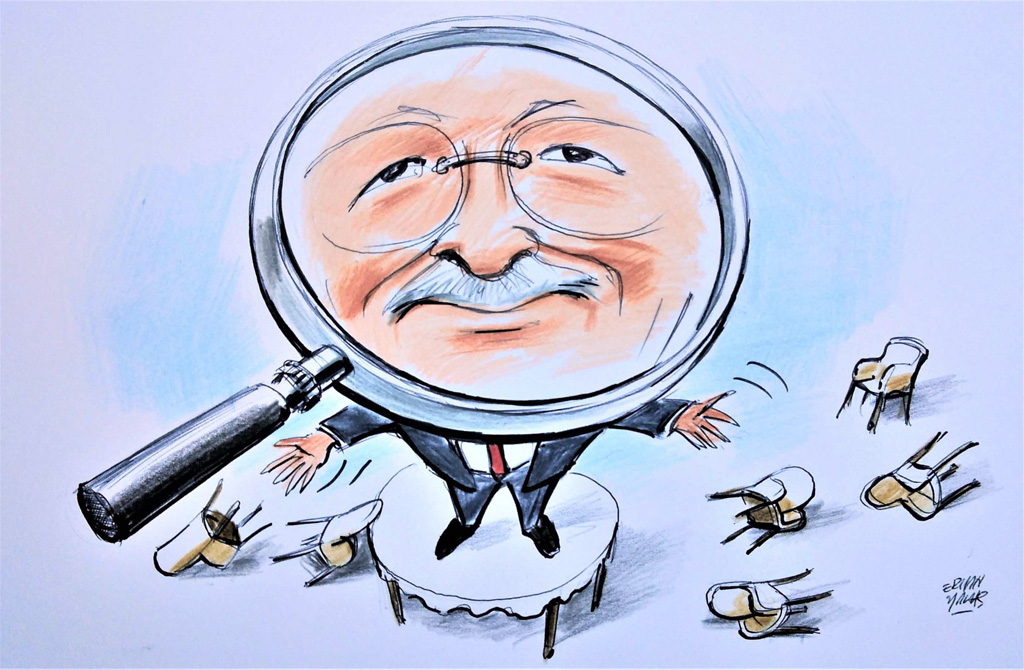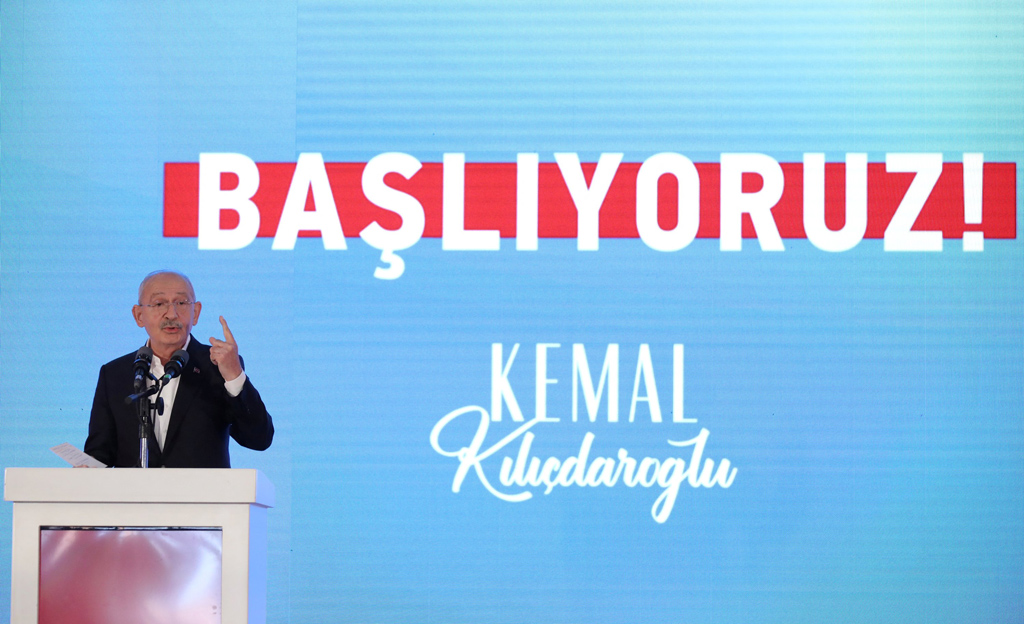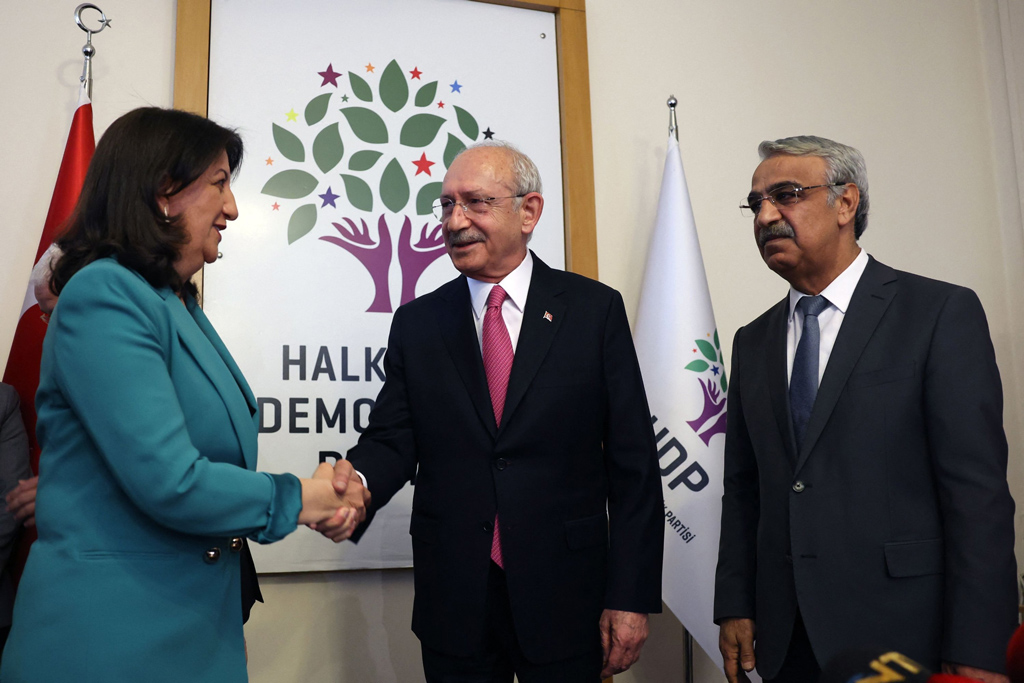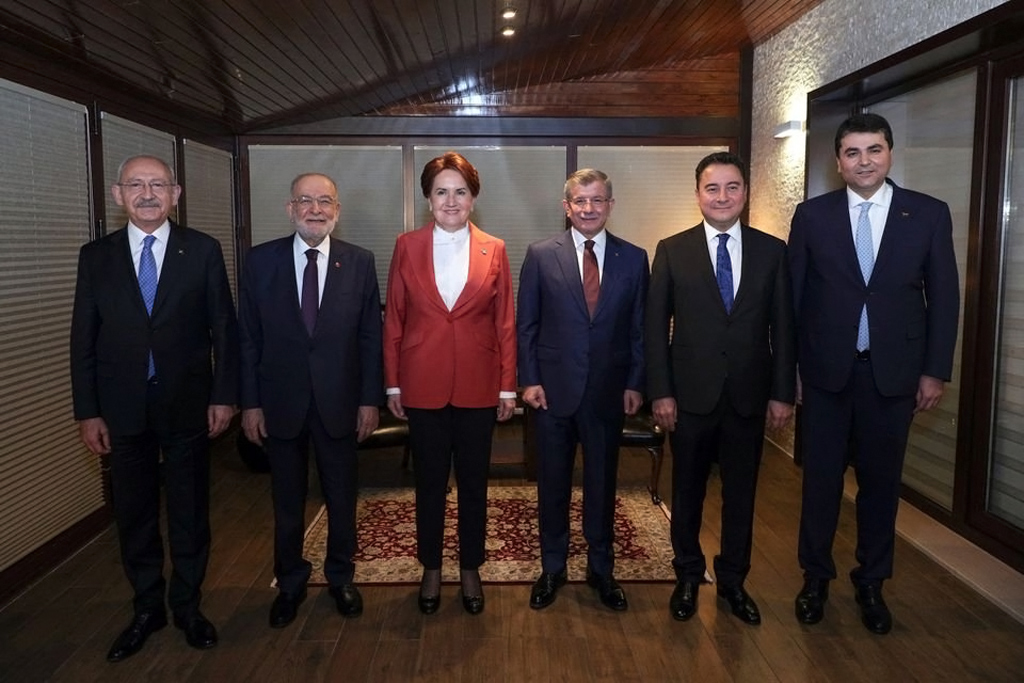
CHP's Kemal Kılıçdaroğlu crosses the line
It remains unclear who grants legitimacy to whom around the 'table for six.' The fact that the three conservative fringe parties stand with the CHP discourages undecided conservatives from voting for them. To be on the same side with the CHP, in turn, offers minor benefits to them from other voter blocs. Furthermore, judging by the reaction of CHP supporters, anyone around the 'table for six' must accept the 'joint candidacy' of the main opposition’s candidate of choice. The fact that Kılıçdaroğlu will be that candidate, too, is about to be confirmed.
Share
The opposition leaders seated around the "table for six" have postponed the joint presidential candidate debate. Yet Kemal Kılıçdaroğlu, the chairperson of the main opposition Republican People’s Party (CHP), is about to reach the point where he can no longer deny that he is running for president. As his mass rally in Maltepe, Istanbul established over the weekend, his party is on the verge of having to nominate its chair.
Just a year ago, many commentators believed that Kılıçdaroğlu would step aside and endorse another candidate. Instead, the main opposition leader has increased the likelihood of his candidacy by resorting to a fresh tactic. As the mayors of Istanbul and Ankara were compelled to take a step back, there are widespread rumors that the CHP and the Good Party (IP) could impose Kılıçdaroğlu on the "table for six." In other words, the opposition is moving past its reservations about "electability."
Meanwhile, the pro-CHP media remind Meral Akşener, the IP’s chairperson, of the main opposition’s “leasing” of its deputies to her party ahead of the 2018 election, urging her to “pay her debt.” The Felicity Party (SP), Democracy and Progress Party (DEVA) and the Future Party (GP), in turn, are being told to be grateful for having been offered a seat at the opposition table in the first place.
Kılıçdaroğlu’s remarks over the weekend – “I will never change when we are in power” – represented a commitment to acting like a president that has been elected under the parliamentary system, even though he will run under the presidential system’s framework.
That statement could be viewed as an attempt to reassure Akşener, who claims that she will become “prime minister without negotiations,” and DEVA Chair Ali Babacan, who considers running in 2028.
No part of the opposition, however, believes that Turkey should hold one or two elections even if a pro-opposition candidate wins the 2023 race. In this sense, it would be a good idea to keep an eye on Babacan, whose party will contest the election individually and, if there is no joint presidential candidate, will run for president himself. Whether his remarks – “We haven’t formed this party for a single election” – are a reaction to the CHP’s imposition is unclear, yet there is no doubt that his words are intended as a bargaining chip and part of a plan beyond next year’s election.
It is possible that the opposition parties, which would like to take advantage of the current state of the economy, would like to see how popular they really are in the first round. GP Chair Ahmet Davutoğlu, in turn, highlights the “easy victory mindset” among the opposition ranks and hopes to strengthen his weakened hand at the negotiating table. What we know for sure, however, is that the CHP is already imposing on the "table for six." It is also important to note that certain opposition figures fueled that debate on Kılıçdaroğlu’s Alevi identity without generating a lasting impact.
Tags »
Related Articles








